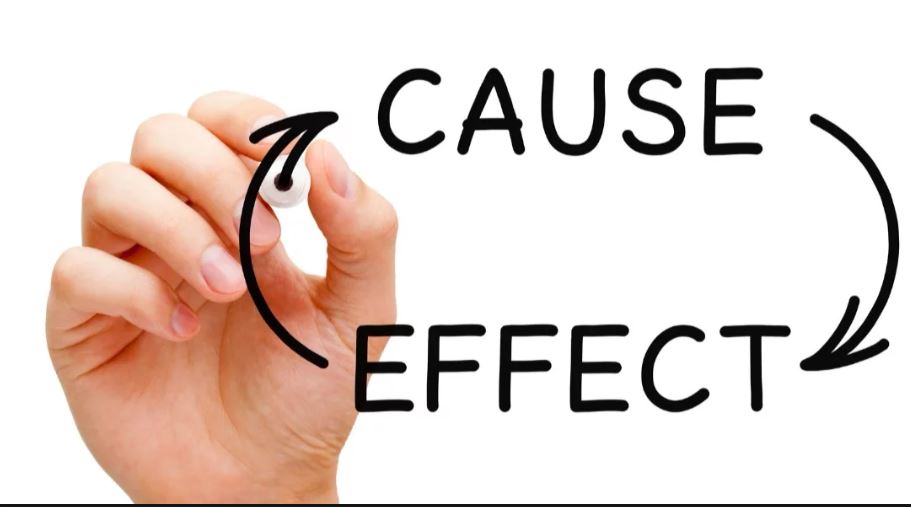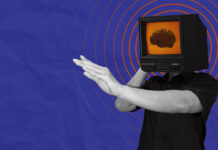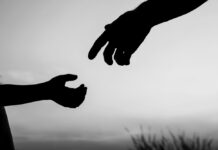New research recently published in JAMA Psychiatry examines the association between traumatic experiences and the development of psychosis. The authors of this large study suggest that trauma may have a causal association with psychotic experiences.
“The findings are consistent with the thesis that trauma could have a causal association with psychotic experiences,” the team of researchers, from the University of Bristol Medical School in the UK, write.
“This study indicates that, assuming the association is accurate and causal, a substantial proportion (25%-60%, consistent with previous estimates) of participants would not have developed psychotic experiences if they had not been exposed to traumatic experiences during childhood.”
 Previous research has found that exposure to childhood trauma is associated with a 2-to 3-fold increase in the risk for psychotic experiences and that this risk is further elevated with the presence of multiple types of trauma. Relatedly, other research has suggested that neighborhood social conditions and personal crime victimization are significantly associated with adolescent psychotic experiences. Further, the presence of adult and childhood victimization has been shown to have an association with an increased risk of later experiences of psychotic symptoms. Additional findings identify a sensitive or critical period of risk during which exposure to trauma is uniquely associated with psychotic experiences.
Previous research has found that exposure to childhood trauma is associated with a 2-to 3-fold increase in the risk for psychotic experiences and that this risk is further elevated with the presence of multiple types of trauma. Relatedly, other research has suggested that neighborhood social conditions and personal crime victimization are significantly associated with adolescent psychotic experiences. Further, the presence of adult and childhood victimization has been shown to have an association with an increased risk of later experiences of psychotic symptoms. Additional findings identify a sensitive or critical period of risk during which exposure to trauma is uniquely associated with psychotic experiences.
To fill the gaps in the current literature, the present research aimed to look at the different effects of different types of trauma, while accounting for developmental age, exposure frequency, and confounding variables may be associated with psychotic experiences.
To examine if the age of exposure and specific trauma types are differently associated with the risk of developing psychotic experiences, the authors utilized data from the Avon Longitudinal Study of Parents and Children (ALSPAC) and extracted a sample of 4433 children. Psychotic experiences were assessed using the psychosis-like symptoms semi-structured interview (PLIKSi), which was administered at 12 and 18 years of age. Trauma was evaluated by 121 items regarding traumatic events and a supplemental questionnaire completed at age 22 to capture sexual abuse, emotional neglect, and physical abuse. Variables captured as confounders include: psychiatric history, genetic risk for schizophrenia, drug use, criminal history, income, smoking during pregnancy, marital status, and living conditions.
Eighty-three percent of the participants with psychotic experiences at the age of 18 reported exposure to trauma vs. 62% of those without psychotic experiences. Exposure to any trauma experienced up to age 17 was associated with increased odds of psychotic experiences at age 18. Not surprisingly, exposure to more trauma types between birth and 17 years was associated with increased psychotic experiences.
Having experienced three or more types of trauma between birth and 17 was associated with a 4.7 fold increase in the odds of having a psychotic experience. The researchers determined that all kinds of trauma experienced between birth and 17 years of age increased the odds of psychotic experiences and that the likelihood of psychotic experiences was greater when trauma was experienced during adolescence
Overall, this study improves our understanding of the impact that trauma has on the probability of having psychotic experiences. The authors conclude that exposure to traumatic experiences during childhood and adolescence is associated with the development of psychotic experiences by early adulthood.
Additionally, the authors propose that their study establishes a causal association between trauma and psychotic experiences. They go on to suggest that the mechanisms of the association between trauma and psychotic experiences are dependent on the severity, chronicity, and recency of the exposure.
****
Croft, J., Heron, J., Teufel, C., Cannon, M., Wolke, D., Thompson, A., … & Zammit, S. (2018). Association of Trauma Type, Age of Exposure, and Frequency in Childhood and Adolescence with Psychotic Experiences in Early Adulthood. JAMA Psychiatry. (Link)















Or our “omnipotent moral busy body” “mental health professionals” have been proactively attacking people who have reported some sort of abuse to a PCP, or whose PCP found medical evidence of the abuse of one’s child.
Then the “mental health professionals” create “psychosis” in those trauma survivors, and/or their family members, with the antidepressants and/or antipsychotic drugs. Because our “mental health professionals” are too stupid to know the antidepressants and antipsychotics create “psychosis,” via anticholinergic toxidrome.
https://en.wikipedia.org/wiki/Toxidrome
Drugs don’t cure symptoms of traumatic events, crazy “mental health professionals.” But the psychiatric drugs do create “psychosis.” Wake up.
Report comment
I believe that adult trauma can also lead to a psychotic experience. I personally know of two incidents. In one case a man in his forties had a breakdown after he found out his wife was having an affair. He became terrified they would get a divorce and he’d lose his family. His psychosis lasted several months. He briefly took medication. The second person I know had a breakdown that lasted a year. Her trauma was related to 9/11. She took no medication. In both cases there was a full recovery.
Report comment
This is not news…It has been known for a very long time.
Report comment
!!!! I was supposed to have the 2nd post now it looks like I copied your comment 🙁 I am too slow.
Report comment
“Additionally, the authors propose that their study establishes a causal association between trauma and psychotic experiences.”
“their study establishes” Their study is old news, we knew this 101 years ago.
The term ‘shell shock’ was coined in 1917 by a Medical Officer called Charles Myers… Doctors soon found that many men suffering the symptoms of shell shock without having even been in the front lines. Read more http://www.bbc.co.uk/insideout/extra/series-1/shell_shocked.shtml
Report comment
In 1917, medical wards filled with soldiers traumatized by trench warfare; their “mental illness” was labeled “shell shock.” Freudian theory provided a revolutionary understanding of “mental illness” and was used to treat the “shell shocked.” After the war, Freudian theory proved so “effective” that it emptied the psych wards of the “psychotic”; it was heralded as a miracle understanding of “psychosis” and “therapy.”
The history of the “shell shocked” should teach us that “psychosis” is caused by trauma and that placebos are about hope. “Shell shocked” soldiers returned home as “cured” from a “common illness” rather than “cowards” from the trauma of orders to charge an entrenched enemy in trench warfare. Instead the history of the “shell shocked” was lost to the context of the War in Vietnam and the failure of Freudian theory to explain human psychology and “psychosis.” PTSD replaced “shell shocked” because the trauma had a different specific cause and PTSD enabled psychiatry to include other types of adult trauma as causation for their myth of “mental illness.”
PTSD pathologizes natural reactions to trauma.
Report comment
In WW1, the troops would uisually get shell shocked enduring their enemies’ artillery prep fire, which could go on for days and involve several million rounds. The Germans built exceptionally deep residential bunkers, but the allies didn’t, particularly the British, who wanted to maintain their “spirit of the offensive”, even if it meant inhabiting flimsy fortifications.
Report comment
Thank you for this heads-up. Please allow me to amend my post to reflect the fact that enduring heavy bombardment was a major cause of trauma among WWI soldiers.
Report comment
Wait, wasn’t shell shock considered a moral injury rather than an illness?
Report comment
I believe that the line between a moral injury (a “neurosis”) and an illness (a “psychosis”) is hazy regarding “shell shock.” I believe that shell shock was generally considered a moral injury until it caused “psychosis” (an “illness”) but I generally do not understand these terms. I know that there were hundreds of thousands of allied vets treated in medical hospitals that were “cured” by the ending of the war.
Report comment
How much do people get paid for such “suggestions”? Can I cash in by suggesting that water is wet?
Report comment
No, oldhead, that’s too definitive! You gotta phrase it without any certainty, like suggesting that water might be wet.
Report comment
That’s probably better. Maybe.
Report comment
Or does wetness CAUSE water? We’ll have to commit to further study on the matter…
Report comment
Comment removed for moderation.
Report comment
Thank you for writing about this research.
While the contents might not be new to some people, links between trauma and the psychiatric diagnoses are regularly minimised and ignored by the prevailing medical approach.
Therefore research such as this, published in a medically respected medical journal, is very important.
Report comment
It IS important. That’s the sad point. There is clearly some powerful denial going on if this kind of research conclusion is ground-breaking or controversial!
Report comment
Psychiatry is a pseudoscience, a drug racket, and a means of social control. It’s 21st Century phrenology, with potent neuro-toxins. Psychiatry has done, and continues to do, far more harm than good. Unless you’re a rich investor with lots of PhRMA stocks. In that case, psychiatry is a literal goldmine. I’m not arguing with your statement, Dr. Lynch, that “JAMA Psychiatry” is a “medically respected medical journal”. I understand where you’re coming from in saying such nonsense. You’re basically saying that Santa Claus is a famous Arctic Explorer. And so-called “mental illnesses” ARE EXACTLY as “real” as presents from Santa Claus. The DSM-5 is best seen as a catalog of billing codes. ALL of the bogus “diagnoses” in it were INVENTED. NONE of them were discovered. The DSM-5 exists to guarantee plenty of diagnostic allegations to serve as excuses to $ELL DRUG$…. So-called “traumatic experiences” can’t NOT cause “psychotic symptoms”….
How far into the 21st Century must the rest of us go, before psychiatry finishes dragging itself out of the 19th, and deigns to join us?….
Report comment
Of course, these findings may seem basic and no surprise at all for many here on MIA, but it is a major finding in the scientific (medical, psychological etc) community. That’s not a sad statement, it is an awakening jolt for many who continue to see psychosis as strictly biological, genetically determined and somehow only treatable with meds. I prefer to see this as a glass getting filled up rather than the opposite or as an almost empty statement. I may get laughed at by this optimism or attract cynicism and other angry responses but I still think it is a step in the good direction. Small and insignificant, as it may seem to some.
Report comment
I don’t disagree with you at all. I just find it sad that such a shock is needed when the evidence for these facts is long-standing and robust.
Report comment
Hands up who’s read the original study?
It’s very poorly designed. And it sets the bar so low that it’s no wonder they found a strong correlation. I suppose, setting the bar high (ie. in their definition of psychosis, rather than sloppily going ahead with psychosis-like, or anything a little teeny bit like psychosis at all, anything, you once thought you heard a sound, any sound, and then you didn’t, and did you ever have a bad experience in childhood, anything, someone a little bit nasty to you, and made you cry, yes, once? that’s enough) the correlation would have been weak, and so not much point going ahead with something that was clearly intended as an exercise in bias confirmation.
I’m not opposed to the idea that some people’s problems stem from bad experiences. Although these days this idea seems to have become a bit of a trendy and maddeningly simplifying narrative that has taken off as some kind of mass delusion.
It would be better surely to come up with robust studies that are courageous enough to risk not confirming the bias, but which might open up other avenues of thought?
Yes. I know. I expect too much.
Report comment